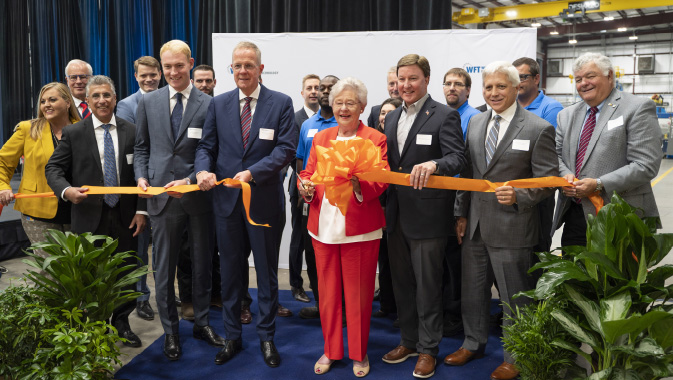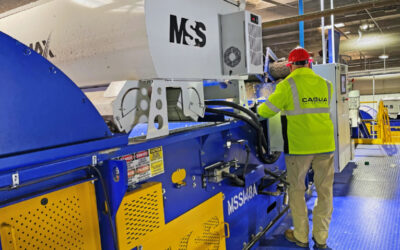A walk down Auburn’s main thoroughfare is a nostalgic stroll back in time, to when families stopped at the corner drugstore’s soda fountain and neighbors knew each other’s names. Today, locals still enjoy camaraderie and cold drinks at Toomer’s Drugs, which set up shop on the corner of Magnolia Avenue in 1896. Located across the street from Auburn University, the beloved landmark is also a favorite with students, who are welcomed as part of the community during the school year. It is this mix of small-town charm, southern hospitality, and student culture that creates a thriving local scene for both young and old to enjoy.
“As a community, we are united by knowing we live in the loveliest village on the plains,” says Auburn Chamber of Commerce President Lolly Steiner. “We’ve been a village for years but have evolved into a community with a very strong business environment and a thriving economy. Both of those things afford our citizenry the best quality of life to raise their children, to work and play – and football doesn’t hurt us at all,” she adds with a laugh.
Football is the heart and soul of Auburn. “You know an SEC town is just different,” Steiner says, referencing college football’s Southeastern Conference. Indeed, there are traditions – some would say obsessions – unique to an SEC community. On game day, the city of Auburn, normally home to 60,258 residents, more than doubles in population when 87,451 fans pour in to fill Jordan-Hare stadium, the 10th largest on-campus stadium in the nation. Rooting for the Auburn Tigers is a way of life here, as are the game day festivities, which include all-day tailgating and rolling the campus with toilet paper after every win. (Auburn’s engineering students have been tasked to develop a better system for removing the toilet paper). Walk down any street and it won’t be long before you hear that familiar shout of “War Eagle” – the university’s game day battle cry – used by the entire community as a year-round salutation.
This blurred line between student and resident is encouraged by a concept dubbed “the Auburn family.” Steiner remembers when she first encountered this inclusive welcome after moving to town 30 years ago. “I kept thinking, ‘who is this Auburn family they are talking about?’ Well it didn’t take me long living here to realize that I am the Auburn family, you are the Auburn family, and everybody that’s ever been associated with Auburn… feel like they’re the Auburn family.”
The Auburn family keeps growing as new students matriculate into the University. And of course, this regular influx of young consumers is a boon to the local economy. “Every fall we get a rejuvenation of that family coming back to Auburn and they’re so happy to be here and they spend a lot of money while they’re here,” Steiner says. This steady stream of reliable customers makes the town a great place to launch a new enterprise. “Why would a small business not want to start in Auburn? You have a guaranteed pool of 25,000-plus students every year and you know that churns over. As you say goodbye to one class, you’re welcoming the next class… It’s such an enticement for a small business owner that wants to open a business here to have that kind of a customer base.”
The city’s picturesque downtown is nestled alongside the Auburn campus, affording easy access to local shopping for the tens of thousands of students. “They literally walk across the street and those small businesses in our downtown throw their doors open and thrive on their business,” Steiner says. Many of these students decide to stay in town after graduation, adding their consumer dollars to the local economy permanently and their expertise to the local pool of employees.
Steiner remembers that, in the past, students used to leave for bigger cities and greener pastures after graduation. Now, the town has become a destination in its own right, bolstered by a wealth of opportunities. In 2019, Forbes named Auburn the 25th Best Small Place for Business & Careers in the U.S., Business Insider ranked Auburn the 11th Best College Town to Start a Career in the U.S., and Business Facilities magazine named Auburn the 5th Best City for Economic Growth Potential in the U.S. People from all over America have caught wind of these opportunities and have been pouring into town, making Auburn one of the fastest growing cities in the nation over the last decade. The metropolitan statistical area (MSA) is fast approaching 200,000 citizens.
The City of Auburn works hard to woo new residents and businesses. “We are good stewards of our tax dollars,” says Steiner. “We – our government, our leaders – reinvest those tax dollars into infrastructure that keeps us on the cutting edge of many things, keeps us viable in competing against other options for people who are looking to start a business or grow their existing business.” In particular, the local government invests those tax dollars into a highly ranked school system that attracts – and keeps – academically minded residents. According to Insurify, Auburn was the most educated city in Alabama in 2019.
A diversified industrial base keeps the local economy strong. “The leadership in our community has long been dedicated to making sure there’s a solid balance of business, knowledge-based industry, and investment,” Steiner explains. The town boasts around 50 manufacturing companies distributed across four different industrial parks; 28 out of the 50 are foreign manufacturing companies representing seven different countries. This industrial base tends to be advanced and forward thinking, with multiple companies in aerospace and biotech as well as automotive and consumer goods.
Of course, Auburn University actively contributes to the town’s industrial capabilities. “We put a lot of talent out in the workforce from the engineering college,” says Christopher B. Roberts, dean of Auburn University’s Samuel Ginn College of Engineering. “Beyond that we have a lot of rich expertise in areas that are relevant locally,” including a wide range of leading edge technologies and skillsets. “We’re very interested in the digital frontier – that digital thread that we weave through the manufacturing enterprise,” Dr. Roberts says. “And we’re doing a great bit with biomedical engineering as a new frontier for this college. All of those are supporting the regional industries.”
The College of Engineering has been expanding its capabilities to support industry. “We’ve really worked hard to bring talent to Auburn in terms of faculty expertise over the course of the past four years,” Dr. Roberts says. “We’ve hired more than one hundred new professors here in the College of Engineering and they brought talents in each of our engineering disciplines from across the world and really created a dynamic, innovative environment with our existing faculty. And as a result, we’ve been able to grow our research programs such that, out of the public engineering schools in the United States, we were ranked number thirty this past year.” In addition, the College of Engineering has become the 23rd largest undergraduate program in the United States.
In 2017, Auburn University partnered with NASA to create the National Center for Additive Manufacturing Excellence (NCAME). The collaborative effort “provides great grounds for not only the development of the technology, but the deployment of the technology,” Dr. Roberts says. “[We] really worked on how we take this from the laboratory to the manufacturing floor.” The center will benefit local manufacturers in addition to industry around the globe. “We really see additive manufacturing as an opportunity for our region given that we’re surrounded by industries that can leverage that,” Dr. Roberts says.
Major companies have taken notice of the region’s leadership in the additive manufacturing space. GE Aviation chose the city of Auburn as the site of a new facility that is the aerospace industry’s first plant to mass-produce a jet engine component using additive manufacturing. Before this, workers made the part using traditional, time-consuming manufacturing processes. “Now it’s done through an additive process that avoids those assembly steps and allows new design characteristics of the part,” says Arndt Siepmann, Auburn’s Deputy Economic Development Director. “It gave us global recognition.” GE Aviation has invested $150 million in the plant, which will employ up to 400 people.
SiO2 Materials Science is another company making a major investment in the city of Auburn. After securing a major contract to supply the federal government with vials to support the COVID-19 vaccine effort, the biotech business plans to invest $163 million into expanding its existing Auburn facility and creating 220 new, high-paying jobs. “The benefits are huge for our community – a very large investment in an economic downturn [at a] critical time of the year under the COVID-19 shadow,” Siepmann says.
To ensure companies have the skilled workforce they need, Auburn’s College of Engineering partnered with the City of Auburn to create the Advanced Manufacturing Training Center. “We’re working really hard to make sure that the region has training opportunities for advanced manufacturing, particularly advanced machining,” Dr. Roberts says. “So our professors are working with professionals from the city and we have put together programs that allow advanced, upscale training.” Siepmann adds, “It fills the gap of technical training for a specific area above the typical community college level, but for something that is not taught for a degree at a four-year college.”
In addition to training new talent, the center is a boon to established businesses. “You might win one new company a year that you can add to your base, but you have twenty, thirty or forty that need to develop further of the existing industries,” Siepmann says. “Your potential there is much bigger to grow. So I see it being used for upscaling of existing employees and existing industries, allowing them to introduce higher technology to increase their productivity and with that, their profitability, because we are in a global competition.”
Auburn is ready to hold its own in this global competition. This small Alabama town is brimming with promise – and earning its place on the map. From a world-class university to advanced industry and a warm, hometown feel, Auburn boasts the attributes needed to become the newest hotspot for next generation manufacturing as well as for anyone wanting to be part of a welcoming family – the Auburn family.













